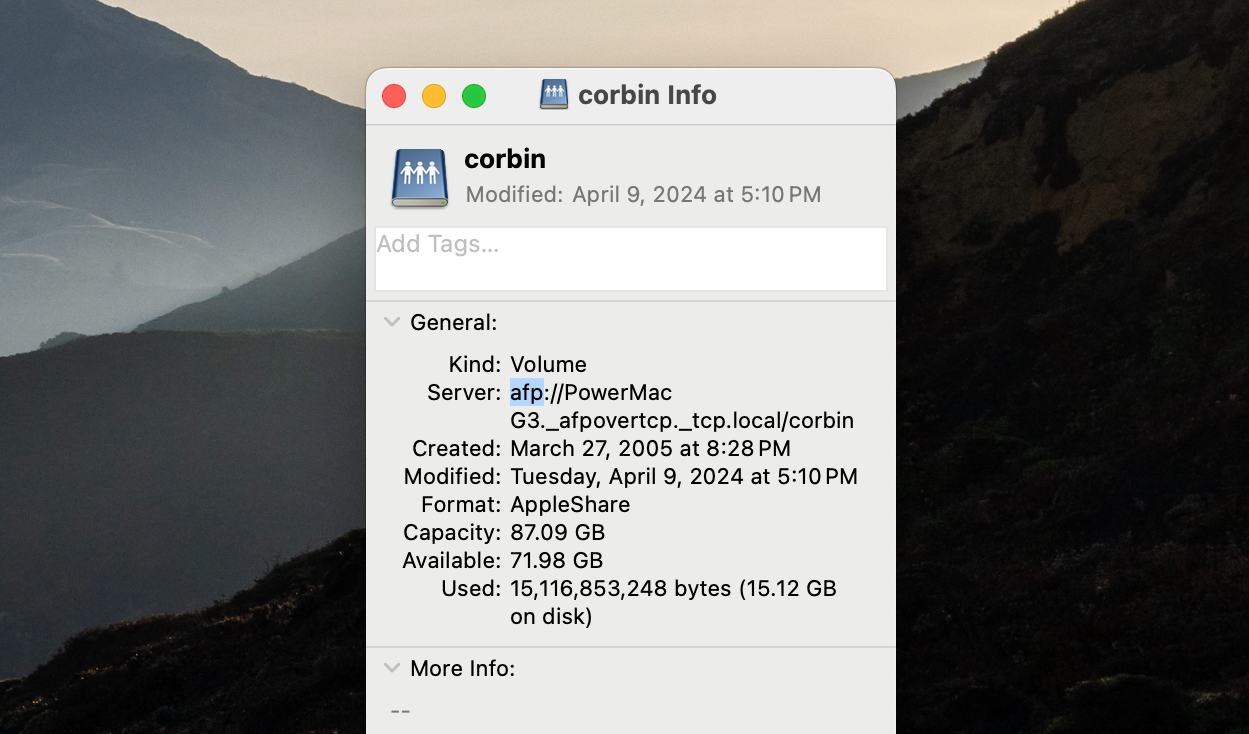Apple has officially deprecated the Apple Filing Protocol (AFP) client in the latest update for Mac computers, and the feature will be “removed in a future version of macOS.” The change will break file sharing with many old network drives and Mac models, including Apple’s discontinued Time Capsule.
The Apple Filing Protocol was the original network file sharing technology in Apple products, dating back to the classic Mac OS. Even though connecting to network shares with Microsoft’s SMB/Samba protocol was also available, Apple continued using AFP for file sharing from Mac computers until Mac OS X 10.9 Mavericks in 2013, when it switched to SMB2 and later SMB3. AFP was also an option in many NAS drives and other network shares, and it was the only supported protocol in Apple’s AirPort Time Capsule.
Apple released macOS Sequoia 15.5 earlier this week as a relatively minor update, but the enterprise changelog revealed the deprecation for AFP, meaning bugs will not be fixed moving forward. It also says AFP “will be removed in a future version of macOS,” which could be the macOS 16 update expected this year, or possibly a different version.
Importantly, this only affects connecting to AFP network drives and folders. Apple removed the ability to create an AFP share in 2020 with the release of macOS 11 Big Sur, and it was never fully supported for drives using the newer Apple File System (APFS).
The Impact
You can still connect to AFS drives and shared folders in macOS, but Apple has now made it clear that it will be fully removed in the near future. After that point, you will have to use SMB/Samba, FTP, NFS, or another supported network protocol.
This change will cut off network drives and shared folders that only support AFS, like Apple’s old Time Capsule drives. Some other drives and network shares also support old versions of SMB, which might still work in future versions of macOS, but only with workarounds.
If you have a NAS, server, or other device using AFS, check if it supports any other protocol. When I first set up my Synology NAS with AFS and SMB enabled, I noticed my Mac was always connecting to it with AFS—if you’re also having that problem, just turn off AFS on the server/NAS.
If you’re not sure what protocol you’re using for a network folder or drive, select it in the Finder, then go to File > Get Info (or the Cmd+I keyboard shortcut). If the server URL starts with “afp://” then it’s an AFP share and won’t work in future versions of macOS. If it’s “smb://” or another protocol, you’re fine.
This will also break file sharing from Mac computers running old versions of Mac OS X/Mac OS. I have a PowerMac G3 and mid-2010 Mac Mini, mostly for running older applications and games, and I’ve had no problems connecting to shared folders from those computers on my modern M1 Mac. It even still works from Mac OS X 10.3 Panther on the PowerMac, which is now 22 years old. There might be some workarounds with third-party applications, but I’ll probably just use HFS+ or FAT32-formatted flash drives after that feature goes away.
Source: Apple via Six Colors

